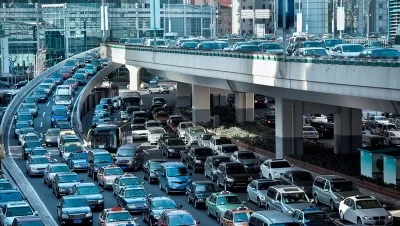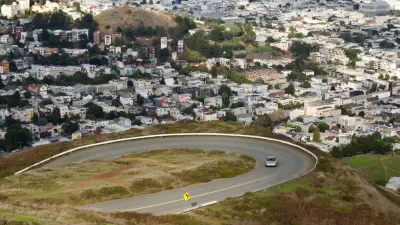Data show that cars are more effective than transit in providing poor people to jobs and economic opportunity. But does that mean transit systems are fundamentally inadequate or just currently inadequate?

Scott Beyer cites a number of studies, from a 2011 study by the Brooking Institute to a 2014 study by the Urban Institute, to argue that cars are a better investment than transit for improving economic mobility.
"Of course, these ideas can be challenging to urban planners, who cling to the default assumption that cities must improve mass transit to reduce poverty. If existing services remain inadequate, then planners use it as an argument for more funding. But what if some of the money went instead towards increasing automobile access? Would that not better help economic conditions for the poor?"
Beyer's article piggybacks on an April article on the Washington Post's Wonkblog, but with a slightly different frame. That is, Beyer's argument is more anti-transit, citing the bus system in Charlottesville, Virginia as a model of inefficiency and supporting Wendell Cox's arguments for subsidizing car ownership.
FULL STORY: How Cars, Not Subways, Will Make Us Richer

Planetizen Federal Action Tracker
A weekly monitor of how Trump’s orders and actions are impacting planners and planning in America.

Map: Where Senate Republicans Want to Sell Your Public Lands
For public land advocates, the Senate Republicans’ proposal to sell millions of acres of public land in the West is “the biggest fight of their careers.”

Restaurant Patios Were a Pandemic Win — Why Were They so Hard to Keep?
Social distancing requirements and changes in travel patterns prompted cities to pilot new uses for street and sidewalk space. Then it got complicated.

Platform Pilsner: Vancouver Transit Agency Releases... a Beer?
TransLink will receive a portion of every sale of the four-pack.

Toronto Weighs Cheaper Transit, Parking Hikes for Major Events
Special event rates would take effect during large festivals, sports games and concerts to ‘discourage driving, manage congestion and free up space for transit.”

Berlin to Consider Car-Free Zone Larger Than Manhattan
The area bound by the 22-mile Ringbahn would still allow 12 uses of a private automobile per year per person, and several other exemptions.
Urban Design for Planners 1: Software Tools
This six-course series explores essential urban design concepts using open source software and equips planners with the tools they need to participate fully in the urban design process.
Planning for Universal Design
Learn the tools for implementing Universal Design in planning regulations.
Heyer Gruel & Associates PA
JM Goldson LLC
Custer County Colorado
City of Camden Redevelopment Agency
City of Astoria
Transportation Research & Education Center (TREC) at Portland State University
Camden Redevelopment Agency
City of Claremont
Municipality of Princeton (NJ)




























